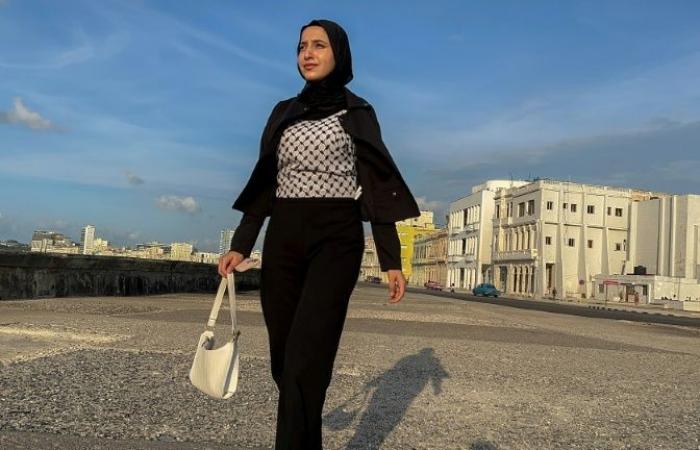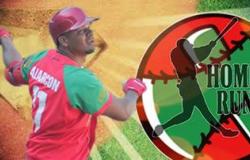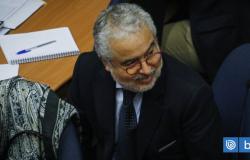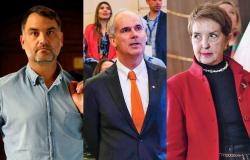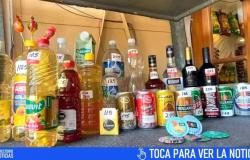Thousands of kilometers from Gaza, Samar Alghoul, a medical student in Cuba, has lived the eight months of war between Hamas and Israel in the dilemma of returning to her land to be with her family or continuing to prepare to fulfill her dream. professional.
Samar, who lives in a room shared with six other girls in a student residence in Havana, says she often wishes she could return with her mother, sister and two brothers to Gaza. “It is easier for me to be with them than with all these thoughts,” without knowing “what they drink, what they eat, where they sleep.”
But she forgets those ideas when she remembers what her mother tells her in her sporadic communications: “We are proud of you, that we have a family member outside of Gaza, to study medicine,” the 21-year-old girl tells AFP.
The war broke out on October 7, when Hamas commandos attacked southern Israel and killed 1,194 people, according to an AFP report based on official Israeli data. Islamist militants took 251 hostages.
In response, Israel launched an air and ground offensive that has claimed more than 37,000 lives in Gaza, according to the Palestinian territory’s Ministry of Health.
Samar learned that his family had to be displaced several times due to bombings. One of them after an attack on a mosque next to the house where she was. They had to get out of the rubble. They recently moved to Deir al-Balah from a town that lacked water and internet.
“They open WhatsApp, they send me a message ‘we’re fine’. You don’t know when you’re going to get news,” says the young woman with a hijab over her head.
– “Very sad” –
In his second year of medicine, Samar regained his strength after a deep depression. She became an activist and now his goal is not only to study, but to spread “the Palestinian cause.”
The young woman is among the 75 Gazans of 247 Palestinian scholarship holders studying medicine in Cuba, subsidized by the Cuban government, indicates Ambassador Akram Samhan.
The Cuban tradition of receiving foreign students in its universities – some on scholarships – has allowed some 1,500 Palestinians to receive professional training for free since 1974 on the island, the diplomat said.
After losing his best friend at the beginning of the war, Motee Almashar, another 24-year-old student, remembers that he couldn’t concentrate.
Now, Motee and his friends are trying to get back to normal “to take some of the stress off.” “But when you touch the phone, you see the news” and it is impossible, she admits in the small apartment she lives in Havana.
One of the last times he spoke to his mother “she was very sad” about a bombing in early May in Rafah, his hometown. “My cousins died, three of my uncles, an aunt and my grandmother. My mother’s entire family,” she laments.
When Hamas attacked Israel on October 7, it was night in Cuba and Mohammed Refat Almassri, who has lost an uncle and eight cousins, was chatting with six Palestinian friends in the living room of the apartment where he lives in a populous Havana neighborhood. A space full of flags and kufiyuas hanging from the walls.
“I knew there would be a catastrophic reaction” from Israel, says this 26-year-old young man, about to graduate as a doctor.
– “Urgently doctors” –
From that moment on they quartered themselves to continue the war without blinking. “We spent three days here that we will not be able to forget,” he remembers in the same room where they continue to gather every night.
The economic life of these university students was also disrupted. They stopped receiving the help that their parents sent them.
Since the end of 2023, the ambassador has been collecting money among Palestinian organizations in the United States and other countries to “partially resolve the problems” of the children, he says at his residence in Havana.
In this uninspiring scenario, this community has seen with amazement the protest movement that gained strength in recent months in the United States and expanded to other countries in Europe and Latin America.
“We thought that only we were defending the Palestinian cause (…) what the students are doing has changed our thinking about the outside world,” says Samar, hopeful in front of the sea next to Havana.
“It gives me honor and a lot of pride,” adds Motee, who has also decided to stay in Cuba to finish his degree and specialty, even though that will mean several more years without being with his family.
But Mohammed, the son of a paramedic who tirelessly drives an ambulance, despairs as he considers that Gaza “urgently needs doctors.”
With weeks to go until finishing his degree, he wants to join the injured corps of doctors in Gaza, where hundreds of health professionals died, although he does not know when he will be able to enter his homeland or how he will pay for his return flight.
lp/mar

